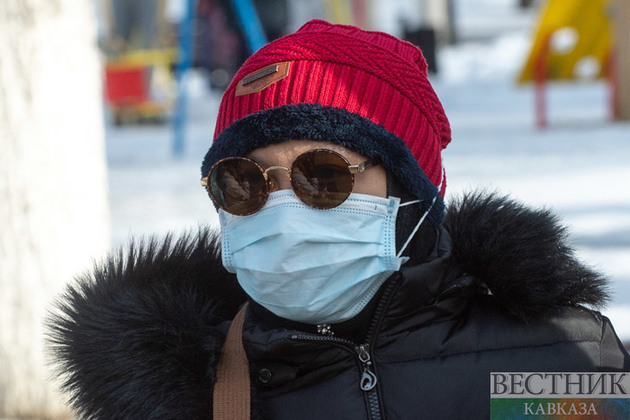Be careful what you say around children, as anyone who has any or works with them knows — they hear everything. Lately, much of what they are overhearing is about coronavirus. The talk has been alarming and scary. People wearing masks, the number of infected people flashing on TV screens and talk of quarantine is frightening, USA Today writes in the article How do you talk to children about coronavirus? Stay honest and simple to avoid anxiety. So, how should parents and educators talk about the issue with children without making them anxious and frightened?
Most children know what a cold is — start there. “The common cold is also caused by viruses and this is no different in the way that it's spread from person to person,” said child psychiatrist Sarabjit Singh. Talk should focus "on washing hands for at least 20 seconds and coughing into the sleeve, not the hand, and maintaining a 3-foot distance," said Singh, who is executive medical director of behavioral health services at Saint Clare's Health in Morris County, St. Mary’s General Hospital in Passaic County and Saint Michael’s Medical Center in Essex County.
While it’s important not to shut out information or put blinders on, parents need to be media savvy and watch out for information overload. “Every time you turn on the TV or go on the Internet things tend to get sensationalized, which creates an alarmist attitude,” Singh said. “Often this leaves more questions than answers in the minds of kids.” The anxious brain will always think of the worst-case scenario. That’s why it’s important to let children know that just because the virus is dominating news coverage that doesn’t mean the problem is getting more severe. News coverage can get repetitive. “It doesn’t mean there is a catastrophe. Often it just means that there is no new information,” said Singh. “When listening to the news the approach to take for both adults and kids is to ask: Is there anything new coming out?”
Keep it simple
Dinnertime conversation can include simple questions, like “Am I learning anything new today? Am I covering the basics? Am I doing what I am supposed to be doing?” Leave it at that. “That should bring some peace,” said Singh. Parents should also be mindful of their tone during these conversations. “It’s not just the tone of media, it is also the tone of adults when approaching the topic. We tend to project our worries onto the kids. Our tone needs to be neutral, but we should not avoid conversations like this,” Singh said.
Adults should keep calm, too
Individuals with preexisting health conditions over 80 years old will need to be more vigilant, but this is not a deadly virus for children, said Dr. Robert Lahita, chairman of medicine at St. Joseph's Regional Medical Center in Paterson. Lahita is currently studying the virus and he said it’s clear to him that “with very young people there is something that is preventing them from getting very sick.” “In fact there were two newborns infected with the virus who weathered the virus very well,” he said. Lahita, though, said he doesn't want to downplay the seriousness of the virus with adults. He didn't mince words when asked about the spread of the virus. "Within the next four months, I see this infection going big. There will be lots of communities that will be infected. There will be churches and schools etc., and I think our hospital, Saint Joe’s, is going to be very, very busy," Lahita said. As a matter of fact, he said, "all of the hospitals within the state and the City of New York are going to be busy. We are ramping up for this as we speak.”
As with the cold or influenza, Lahita said individuals will have different results, depending on their immune system. “Some people will be asymptomatic," he said, "others will have the common cold and others will have total respiratory failure." He said 80 percent do not get very sick while 14 percent will get "somewhat sick" and 2 percent "will wind up in the hospital.” Even though these numbers are scary, it’s better not to keep children in the dark, Lahita said. Professionals advise against waiting until the virus hits or affects the family before talking to children. “That kind of attitude, whether it’s by caregivers, adults or school systems, always invokes more anxiety,” Singh said. “It sends the message that adults are keeping secrets. The more people get educated about an issue the better it becomes. Anxiety in its simplest form as a phenomenon is all about uncertainty.”
The bottom line
Dr. Donald Allegra, formerly with the Centers for Disease Control (CDC), is now an infectious disease specialist with Saint Clare's Health. “The CDC warned people a couple of days ago that it would not be a question of if, but when the virus would start spreading," Allegra said. There’s a lot of panic out there, but we haven’t had any deaths in the United States so far. The panic out there is kind of misplaced." In the end, this virus acts and spreads much like the common cold, which means you have to be within 6 feet of somebody in order to get it, Allegra said. “It is a concern,” said Allegra. “But we are preparing for it. In the end it’s going to be much less of a concern than a bad influenza season.”






